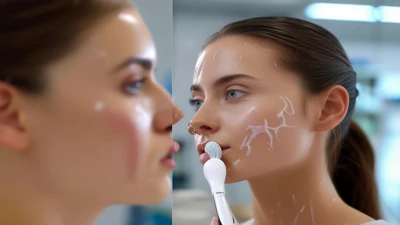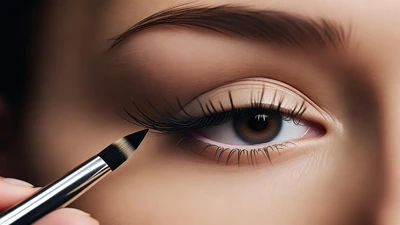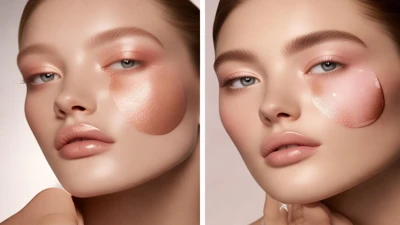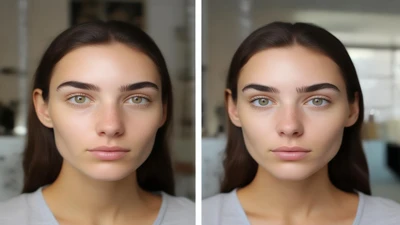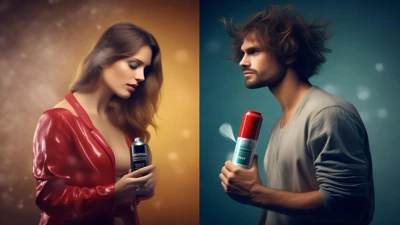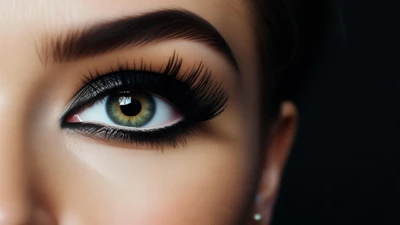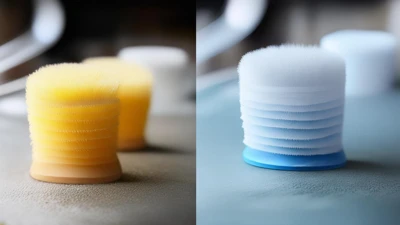
Chemical Peels versus Physical Scrubs: The Exfoliation Battle
Exfoliation is the process of getting rid of dead skin cells from the skin's surface and is essential in skincare routines globally. It improves skin texture, clears out pores, and boosts cell renewal. People are debating the effectiveness of chemical peels versus physical scrubs. The essay reviews both practices by applying scientific, practical, and personal criteria. Case studies and expert knowledge illustrate their strengths, limitations, and alignment with diverse skin types.
Understanding Chemical Peels
Mechanism of Action
During chemical peels, acids or enzymes work to dissolve the material that binds dead skin cells. Common active ingredients often feature alpha-hydroxy acids (AHAs) such as glycolic acid, beta-hydroxy acids (BHAs) like salicylic acid, and retinoids. As these agents pass through the stratum corneum, they promote a balance of exfoliation and boost collagen levels.
Types and Concentrations
AHAs are commonly found in superficial peels. e.g., 30% glycolic acid works on mild skin texture and brightens a dull complexion.
Medium peels with TCA (trichloroacetic acid) at concentrations of 10–30% can treat pigmentation issues and moderate wrinkles.
The treatment of intense sun damage is possible with phenol-based peels at up to 88% strength. Such procedures call for a rest period afterward.
As per a 2018 study in the Journal of Cosmetic Dermatology, 30% glycolic acid peels were effective in enhancing skin texture for 89% of participants after six weeks. Irritation levels were negligible.
Benefits and Risks
Pros:
Consistent exfoliation without the need for manual scrubbing.
Reaches the lower skin layers where acne and pigmentation issues often occur.
Long-term stimulation of collagen helps to diminish fine lines.
Cons:
Using this improperly may lead to chemical burns.
Heightened sun sensitivity post-peel.
The cost of one session of professional peels falls within the $150 to $600 range.
A 2021 study published in Dermatologic Surgery revealed that a patient had temporary hyperpigmentation after using a 40% glycolic peel at home. This highlights the importance of seeking professional advice before attempting DIY skincare treatments.
What Physical Scrubs Do
The Process of Physical Exfoliation
Physical exfoliants rely on certain abrasive particles. Examples of these particles are sugar, salt, and microbeads. Their function is to slough off dead skin. These scrubs are spread around in circles, giving you tactile feedback right away.
Ingredient Variations
For a gentler exfoliation, you can use natural abrasives such as ground coffee, jojoba beads, or oatmeal.
In 2015, the Microbead-Free Waters Act led to a ban on synthetic microbeads in the USA. The reason was their negative impact on the environment.
Try Konjac sponges, silicone brushes, or washcloths for your routine.
A 2020 study in Environmental Science & Technology found that microbeads were responsible for 80% of the plastic pollution in the Great Lakes before the ban, leading to the move toward biodegradable alternatives.
Benefits and Risks
Pros:
Experience smoothness right away, with gratification close behind.
Personalized pressure adjustments for delicate parts.
Affordable (e.g., The cost of drugstore scrubs varies from $10 to $30).
Cons:
Inflammation is a common result of over-scrubbing due to the microtears it creates.
Deep-rooted acne like cystic acne cannot be treated this way.
Non-biodegradable scrubs are causing environmental problems.
Daily use of a walnut-shell scrub resulted in perioral dermatitis, according to a 2019 case study. Experts caution about the adverse effects of rough exfoliating products.
A Comparative Review of Efficacy, Safety, and User Feedback
Depth of Exfoliation
Chemical peels stand out because they can go deep into the skin layers. Consider BHAs such as 2% salicylic acid. They remove oil and debris from pores, making them excellent options for individuals with acne-prone skin. A recent clinical trial in 2022 found that 2% salicylic acid peels outperformed benzoyl peroxide scrubs. The peels reduced acne lesions by 68%, whereas the scrubs achieved only a 42% reduction over 12 weeks.
While physical scrubs work well on the surface, they cannot provide deep exfoliation. The journal Skin Research and Technology published a study in 2017 showing that scrubs remove just 30% of stratum corneum cells. In contrast, 10% lactic acid removes 60%.
Skin Type Compatibility
People with sensitive skin should choose peels that have a low concentration of AHAs. e.g., Lactic acid provides a gentler option compared to scrubs.
BHAs are ideal for oily and acne-prone skin. They help remove pore blockages effectively.
Use hydrating chemical peels to treat dry skin. e.g., To prevent over-drying, mandelic acid is recommended. Scrubs should be avoided as they can make flakiness worse.
Sustainability and Accessibility
Concerns about physical scrubs and the environment are rising. Lush and similar brands now focus on biodegradable solutions. While chemical peels may seem eco-friendly, the fact that they rely on single-use packaging and professional handling contributes to an increased carbon footprint.
Cost-Benefit Considerations
At-home peeling solutions. e.g., The AHA 30% + BHA 2% Peeling Solution by The Ordinary is a worthwhile investment at $15–$50. Physical scrubs are not as cost-effective since they require frequent replacement.
While professional peels are pricey, their effectiveness in achieving visible results in fewer sessions is undeniable.
Inner Thoughts Meet Cultural Realities
The Ceremony of Exfoliating the Skin
Using a smooth oatmeal scrub feels like a meditative moment for my combination skin. It gives a calming sensation, so I've decided not to use it more than twice a week to avoid problems.
Chemical Peels Offer Clinical Benefits
I had issues with post-inflammatory hyperpigmentation. My dermatologist recommended a 15% azelaic acid peel. The persistent improvement in my complexion made me a believer in chemical exfoliation, despite the initial mild discomfort.
Cultural Practices
In South Korea's K-beauty practices, double cleansing comes first. Next, they proceed to chemical exfoliation using toners that balance the skin's pH. In contrast, Ayurvedic practices often use ubtan, which is a mixture of chickpea flour and turmeric, for physical exfoliation. The connection between cultural preferences and skincare choices is demonstrated by these practices.
Upcoming Developments as Seen by Experts
Dermatologist Insights
Dr. Chemical exfoliants are highlighted by Michelle Henry, a dermatologist from New York, as being accurate. These products avoid damaging the skin barrier and can be used for a prolonged period. Using physical scrubs has its advantages, but it takes a careful approach.
Emerging Innovations
Using nano-encapsulation, peels can deliver active ingredients with less irritation.
Scrubs that are eco-friendly often include upcycled ingredients. Coffee grounds are a great example of this.
Hybrid Products: Merging AHAs with mild jojoba beads. e.g., Use Paula's Choice Skin Perfecting 2% BHA Liquid. It provides scrub-like benefits.
A Word From Beautyvs
Some people prefer chemical peels because of their strengths. Others like physical scrubs for their unique qualities. Neither option is perfect. Chemical exfoliants produce superior results for clinical applications. Physical scrubs, in contrast, satisfy users immediately and engage the senses effectively. Personal skin conditions, eco-friendly values, and comfort with testing new options all play a role in the choice. People now prefer skincare solutions that are powerful, harmless, and eco-conscious.







